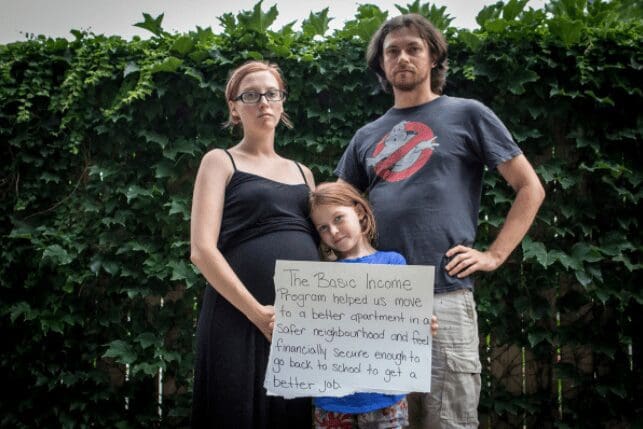I recently had the chance to correspond with award-winning photographer Jessie Golem. Her outstanding and well-renowned photography series “Humans of Basic Income” turned heads and broke hearts all over North America.
The Universal Basic Income (UBI) concept received a lot of airplay thanks to former Democratic primary candidate Andrew Yang. Here in Canada, certain provinces such as Ontario have already examined this idea. Unfortunately thoughtful data is often subject to political marksmanship. While UBI could alleviate poverty and fast-track financial assistance to those in need, it has been bogged down by bureaucracy. The pilot project was cancelled without much consultation. The decision plummeted tenants, students, new car owners, and various other segments of our population into uncertainty and unexpected emotional and financial destruction.
When interacting with Jessie, she was forthcoming and articulate with her misgivings about the cancellation of the pilot program. She is enigmatic, thoughtful, engaging and fair. Her work speaks for itself and showcases the turmoil of those left behind by government posturing.
“I can’t even count the number of people that I have personally interacted with who have been negatively affected by this cancellation. Besides people who were directly affected, there were 70 people in my portrait series, but a number of others who, for various reasons, didn’t participate in the portrait series. There were others that were affected by the cancellation of the pilot even if they weren’t on the pilot. People who worked with, or have friends and family who were on the pilot. I can’t count the number of people I met, but at least hundreds who were on the UBI pilot, and were negatively affected by the cancellation, myself included.”
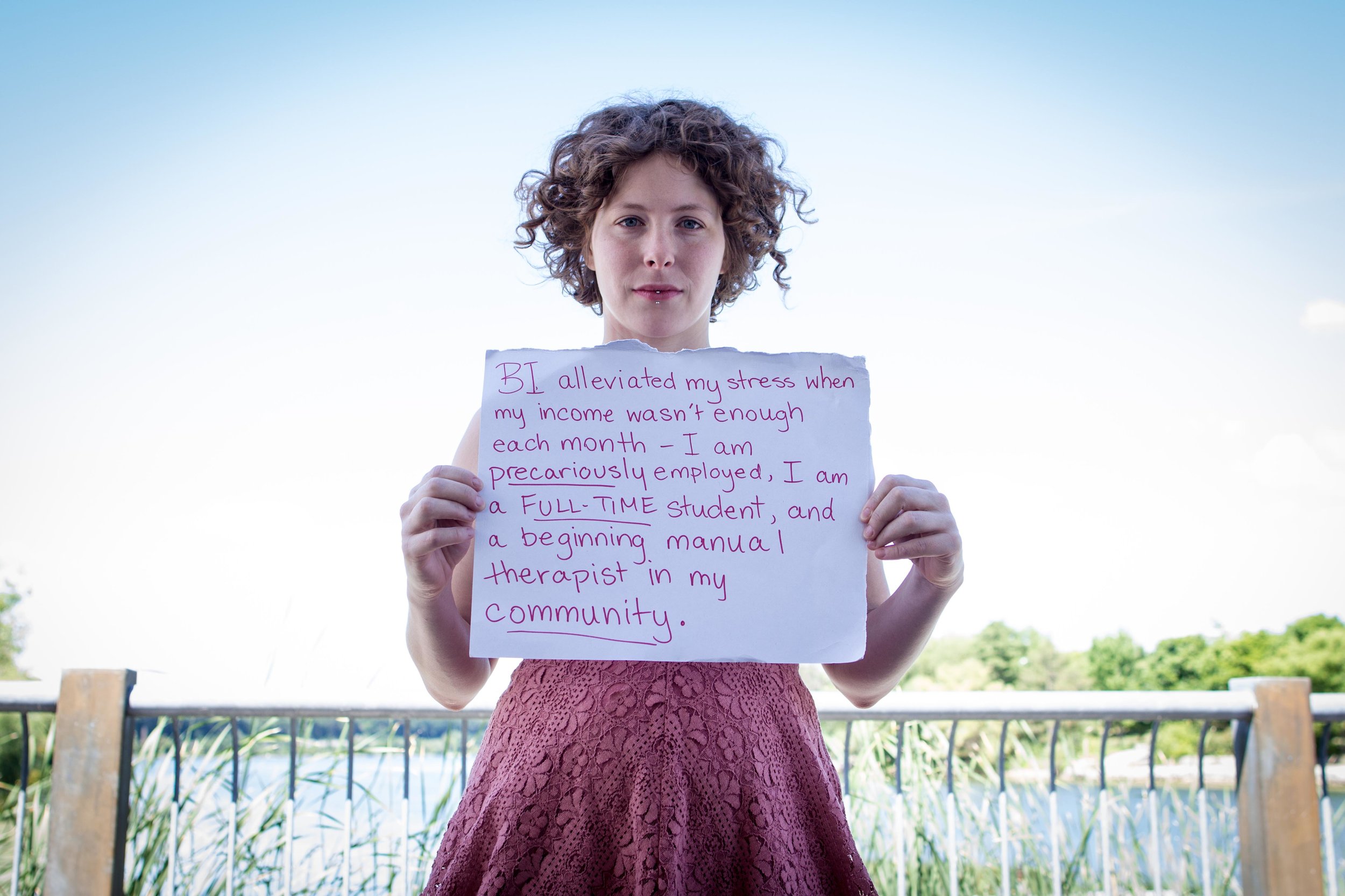
When asked to speak about these negative impacts, Jessie didn’t hold back.
“I have seen negative physical transformations in people. I’ve seen people who looked healthy while on the pilot and in the immediate aftermath of the cancellation, who now look a lot less healthy, or look impacted by poverty. I think of my friend Michael Hampson, who was on the pilot, and immediately fell back into poverty after the pilot got cancelled. He was an activist, and advocate for people with disabilities – himself being wheelchair bound. He was stuck in the trap that is ODSP (Ontario Disability Support Program), and stuck in poverty. His suffering was made worse when ODSP was cut even further. He died last month, alone in his apartment. His funeral is this Thursday. I don’t think he’ll be the only person to die due to the effects of the BI cancellation.”
When asked about any profound moments that Jessie had while taking on this project, Jessie exploded with meaningful emotions.
“There were too many to count. As soon as I put the photos out there, I realized I had created something altogether much bigger than I could have imagined. It was watching this thing go viral and seeing the emotional response of people seeing the portraits and telling the stories. It was also realizing that for the UBI recipients, it was a form of therapy being in the series. For a lot of people who participated, and wrote their stories out by hand, it was an emotional process to articulate what happened, and how their lives will be impacted by the cancellation. It was also seeing that a lot of these people didn’t feel like they had a voice, and by giving them a piece of cardboard and a marker, I had given them a loud and powerful voice.”
“Other profound moments included meeting some of the most inspiring politicians I never thought I would meet. The most inspiring meeting was the times I have met (former Ontario Premier and UBI proponent) Kathleen Wynne. It was also incredible to find myself as a part of the Basic Income movement, which is still small, but growing rapidly, and finding myself literally stuffing my portraits into a cement tube and going on planes and flying all over the world with them. I didn’t anticipate making an impact that would be felt all over the world. I don’t think anyone ever anticipates something like that, especially as a starving artist in Hamilton.”
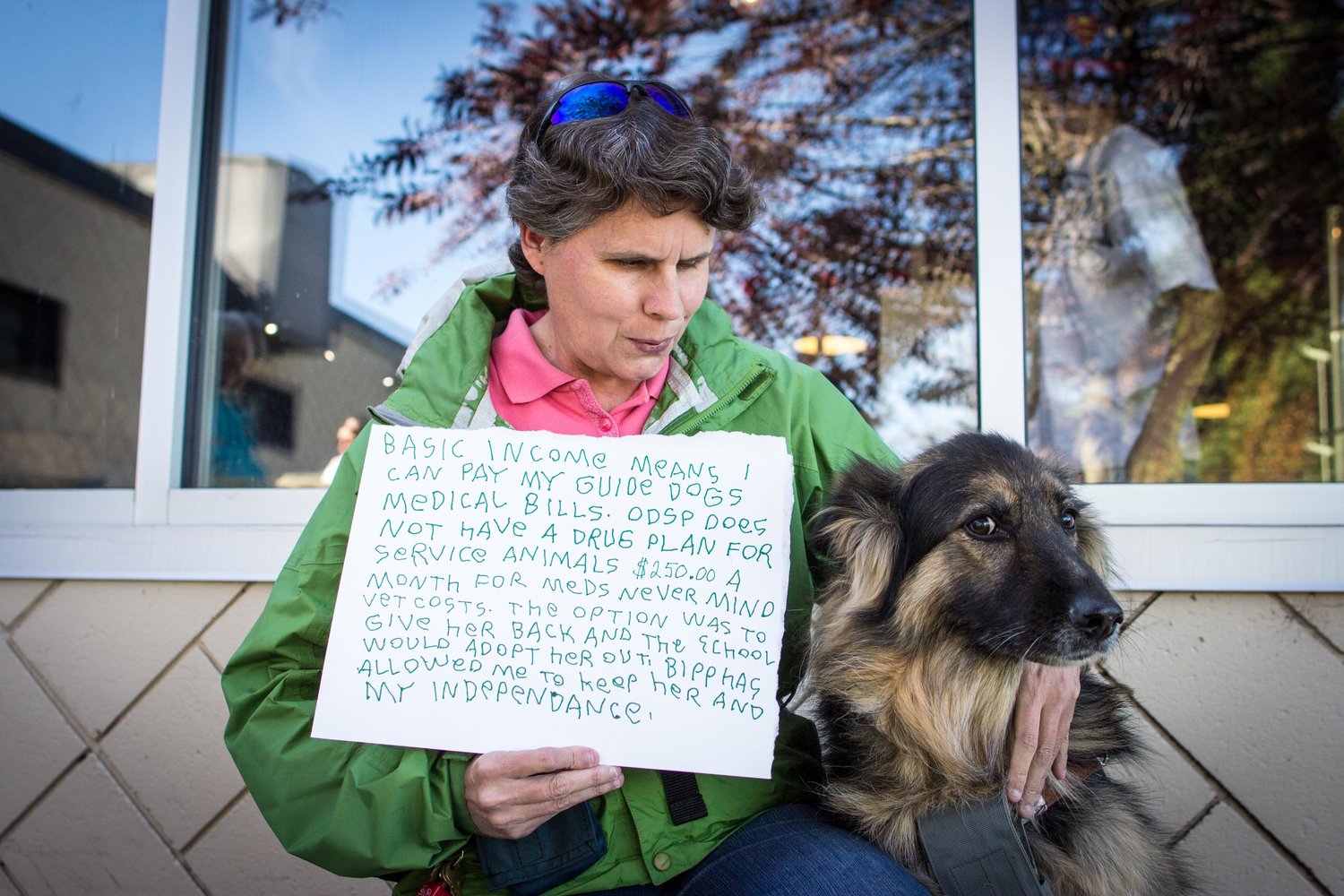
Jessie has showcased her work in numerous cities around Ontario and Canada.
Toronto, Hamilton, Peterborough, Kingston, London, Kitchener, Winnipeg, as well as the North American Basic Income conference in NYC, and the Basic Income Earth Congress in Hyderabad, India. This year, they will be coming back to the North American BI conference and the BI Earth conference in Brisbane, Australia. They’ve been covered by every major Canadian media outlet, as well as a few international ones. The future is bright for Jessie , who was herself a participant in the cancelled pilot program.
She counts herself as one of the lucky ones.
“After the cancellation, thanks in part to my activism, I was able to find full-time work. I’ve recently been laid off however, so I’m at an exciting point in time in figuring out what I want the next steps to be. I’m not rushing into anything. I was definitely adversely affected by the cancellation, in that a direction and life-plan that I had was beginning to be realised thanks to my participation in the Basic Income pilot, is now a dream I’ve had to put away … probably forever. But I say I’m one of the lucky ones. I am better off now than I was before basic income, and I know very precious few people can say the same thing. Most are worse off.”
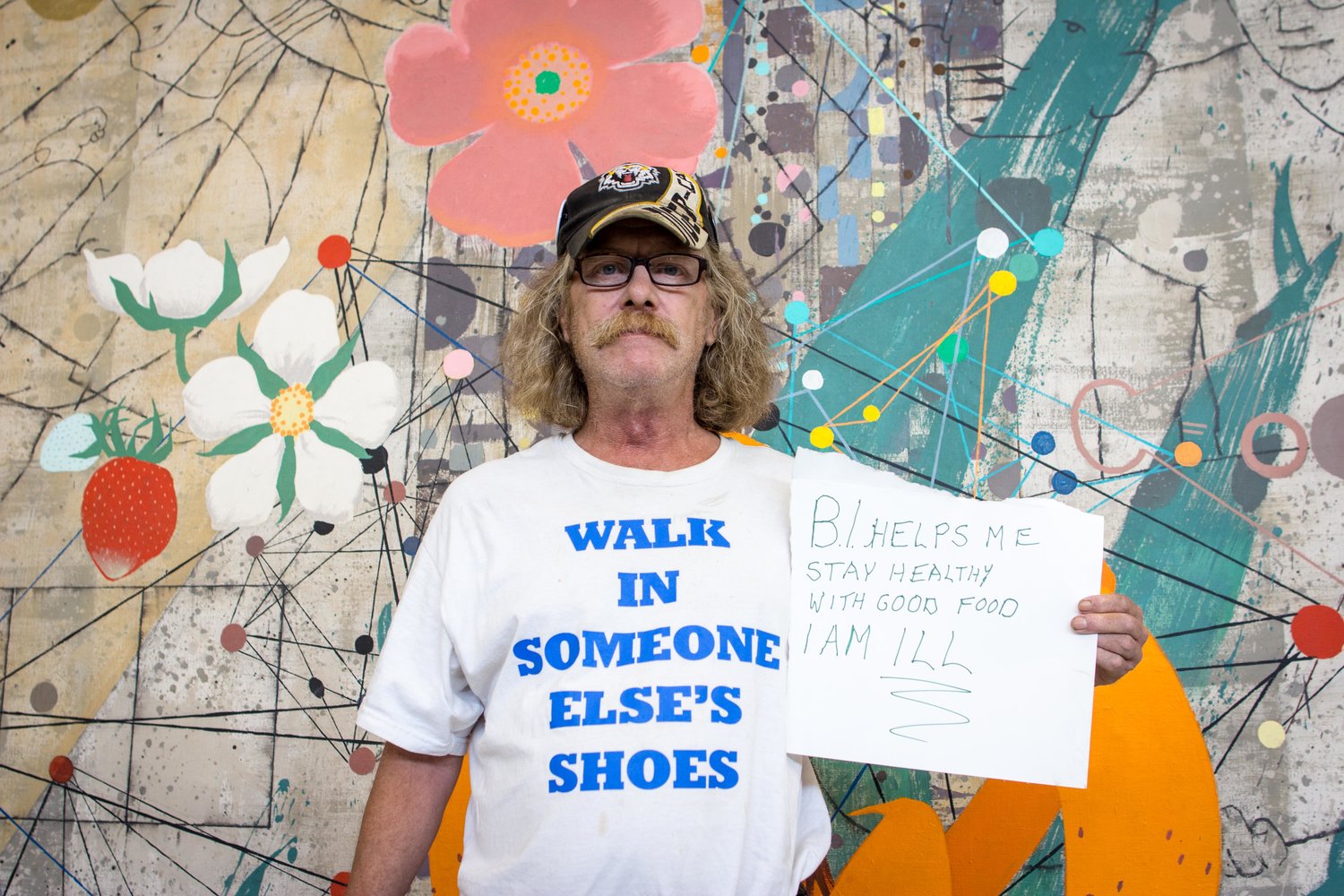
Jessie did not mince words when asked what she would say to decision makers responsible for programs like the Basic Income Pilot project.
“These short-sighted decisions can kill people. Michael died because of government decisions, and now his death is on the responsibility of the taxpayer. We are the ones paying for his funeral, cremation, and disposal of his body. We could have been paying for his life, and paying for him to THRIVE, which ultimately would have turned into economic benefit for everyone.
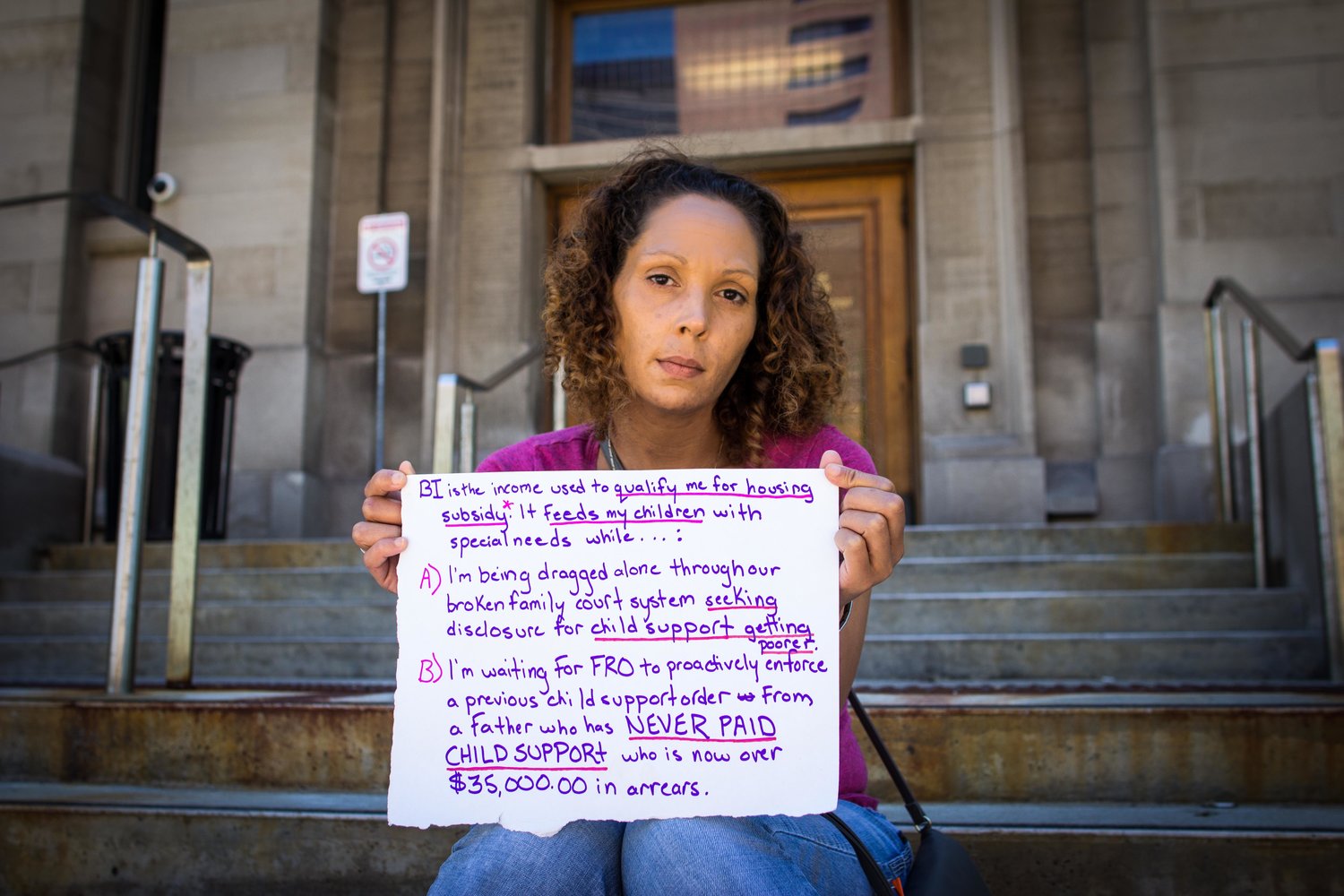
How could you be so short-sighted? How could you be so foolish? All of us pay for the poorest in society. Is it not better to equip our most vulnerable to succeed? How can we be a strong Canada when we let people fall through the cracks? I literally see this every single day I step out of my house or my former workplace, and see the homeless people camping in my backyard. I know them by name. They are good people that would help our society. If only you’d look past your selfish agendas and concern yourself with the responsibility we elected you to fulfill – to build a better world and an equitable society for all.”
Finally, I asked Jessie how she would inspire readers to stand up as activists and change their perspectives. She left me with these parting words.
“We all have within us the ability to create change, and to infiltrate these institutions in a positive way. I understand now what it is that motivates people to picket and protest.”
“A while back, I had a conversation with a friend who asked me, ‘How do you create justice out of adversity?’ and I see this answer as a battle we have to constantly fight, and cannot give up. Complacency isn’t an option!”










